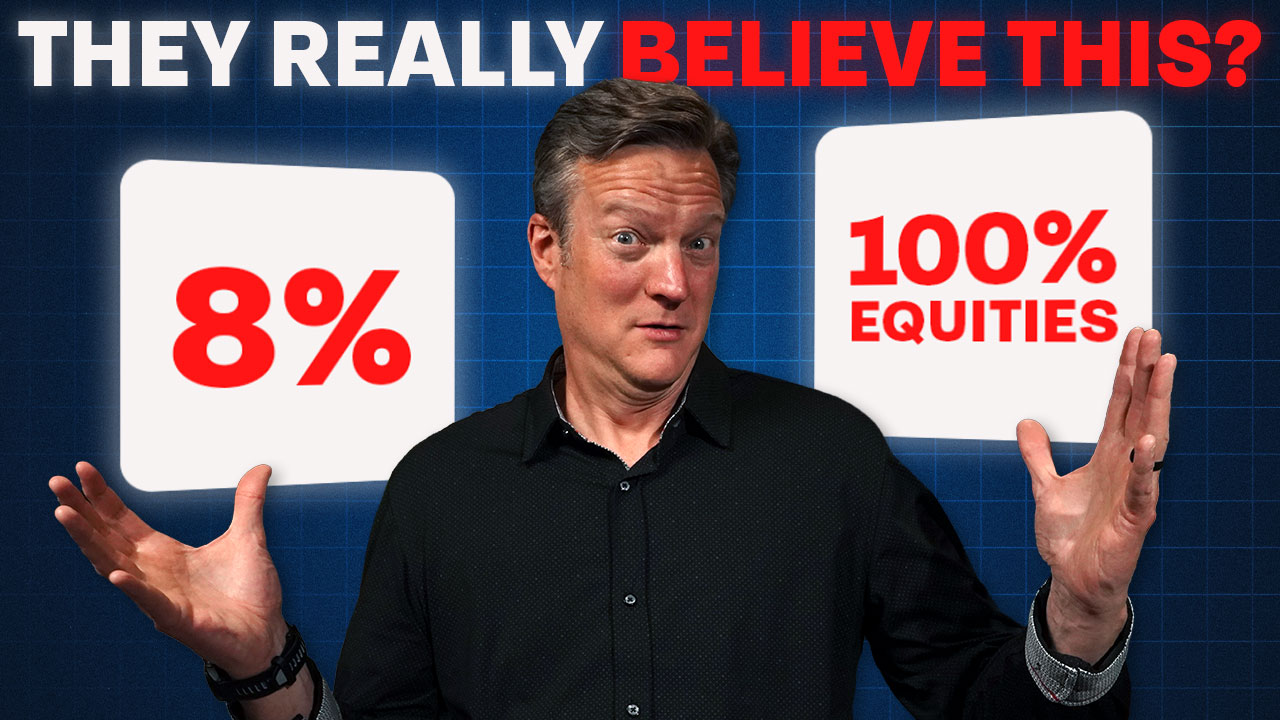We have a question from Isaac up next. He says, "I'm curious about your thoughts on the relationship between home prices and current interest rates. I want to upgrade, but I think people are still asking for three percent home prices when we are now in a six percent interest rate world. What do you think of that? Could there be some softening in the real estate markets?"
I think the question is asking if people are still pricing their houses based on back in the day when we could get three percent mortgages. I think here's where my mind first goes, Brian. I want to see if you hear this. You know when it comes to buying and selling houses, supply and demand still rules, right? If there is a large demand for housing, prices will go up. If there is an oversupply of houses, then prices will come down. So there is a supply-demand relationship. So if we're living in a world where interest rates are higher and getting a mortgage is more difficult, and saving enough for a house is more difficult, and it's a natural barrier and creates friction to buying homes, it seems reasonable and logical to me that perhaps home prices could come down if the people willing to pay for a mortgage at this rate does not satisfy the current supply of analysis.
Now, what we don't know, and this is where none of us have a crystal ball, is that these sort of things can persist for a while. I mean, right now we all suffer from recency bias and we remember two and a half, 2.75, 3% mortgages. But I would argue that two and a half, two point seven five, three percent mortgages are not the norm. They're not at the historical average. You gotta look at what the historical average of mortgage rates were and say, "Okay, well, where are we relative to that? Are we that much higher? Are we slightly higher?" And then you gotta ask the question, "Are willing buyers going to just be willing to pay for these higher interest rates, higher mortgages?" And so long as willing buyers are willing to do that, home prices are going to stay elevated. But as with most things with real estate, Brian, I'd love you to speak to this, it really comes down to location, location, location. Where are you? What's unique about your area? Because that's going to have probably the most direct impact on what happens to prices. I do think it's a localized thing despite what I know some other commentators have said, that they make universal statements. But I think geography does matter in a lot of these decisions.
But I also think, you know, we had Scott on the show recently from Bigger Pockets. We did a whole episode on real estate. You ought to go check that out. But this goes back to that rent versus buy decision and how flexible you are with your timing. Because look, I'll make the argument that there was a point in Bo's life, I remember when your wife was pregnant with your first child, and I was like, "You are crazy if you don't go buy a house right now." I pretty much felt like we bullied you into a three-bedroom apartment. You were your ability to wait on that life decision based upon where you were at and the opportunities, it made sense for you to move. That's right, because you could put it under the decision-making matrix that this is instead of being a five to seven-year decision, I would say with interest rates this high and with the market value of houses still high, with those two things together, then it needs to be a 10-year decision. I would go beyond the five to seven years we talk about. I would go, "This is a 10-year decision," because I think what Isaac is asking is that there is going to be pressure with high interest rates that's going to pull people out of the market in their ability to buy. Well, and also, there are people that are trapped with these two and a half—it's crazy to say "trap" because it's a gilded cage—when you have a two and a half to three percent mortgage, you're going to really be thinking long and hard about, "Do I move out of this house with the debt being so low?"
So it's going to create some softening on the real estate marketplace. That's why I say I think it's okay if you wait, if you can, if you want to see, "Hey, will prices start coming down?" Because I was looking for a client in the Florida area on some specific property, and I did notice when I was on the MLS system, there are a lot of properties that I thought was interesting. You were seeing $25.50 even on a $100,000 price reduction on some of those prices. I was like, "Wow, this is something you didn't see 18 months ago." And then I've also heard from others that due diligence and all the normal stuff has come back. I even saw a real estate agent talking about incentives in brand new neighborhoods. All the stuff that happened—I mean, I'm talking about pre-2015—where you would get incentives from in brand new neighborhoods, like where they give you a lot premium, where you didn't have to pay it on that, or they give you an appliance allowance and all these things. That stuff disappeared for a period of time. It's coming back.
These are all showing that there's probably some softening in the marketplace to where the people who are selling, whether it's new construction or existing construction or existing homes, they go drop the price. That's the only game they can play. But new construction, they can incentivize. They can even buy down your rates to you. So it, and they also—I've heard, and they don't know, by the way, these talking heads—but I'll tell you what I heard because I'll play my own game of telephone with you. This real estate expert that I was watching was saying that they don't think the refinancing opportunity is going to occur until 2025. Now, they don't know any more than we know. That's a guess. But I will tell you, do not go get yourself in a headache of a house purchase where your house, your house rich, life poor, because you're counting on that you're going to be able to refinance in 12 months or 24 months. No, you make the decision based upon this is a 10-year purchase decision. Am I going to be okay? Because time is going to moderate all these volatile factors that we're taking into consideration.
But it is one of those things, Isaac. I do think that obviously interest rates are having a putting a lot of pressure on the real estate marketplace. But also, it's back to Bose, and I love bringing this around in a Seinfeld way to full circle, is that it's back to location, location, location. Because if you ask me about the area we live in, we still have so many companies moving here. Did I still see, like, houses are being built in my neighborhood? They're still going under contract. And it's because there's just enough flow of people coming into the area that it's empowering through the interest rates and but if you're in an area where there aren't as many people moving into the area, then it's going to put even more pressure on that inventory that's sitting out there because interest rates are definitely creating a cooling atmosphere. But there are a lot of factors, and that's why it doesn't need to be an emotional decision. It needs to be something where you measure twice, cut once, and make sure that you know this reflects what your life and your financial life are going to look like over the next 10 years.











